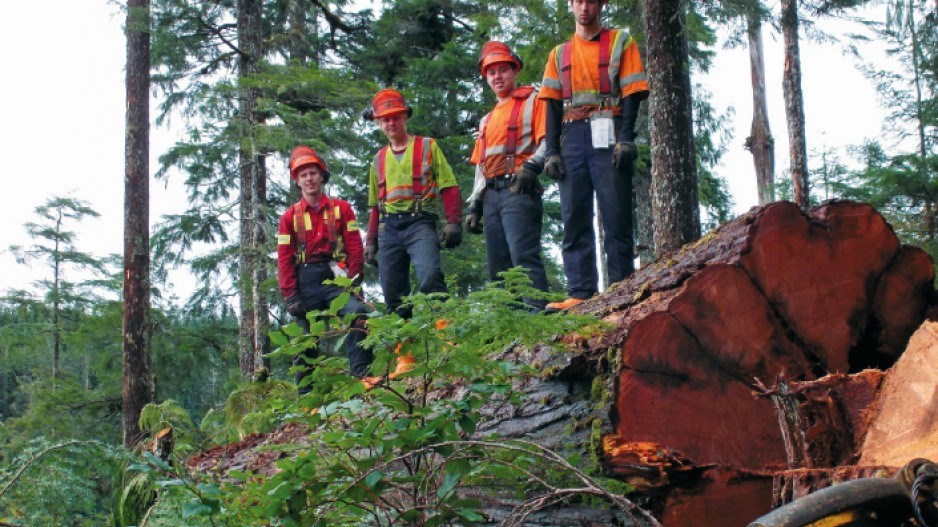As highrises blanket Vancouver's downtown and box stores dot the landscape in the suburbs, the significance of the province's natural resource sector – concentrated mainly in rural B.C. – isn't obvious in urban life.
But a new study reveals the Lower Mainland's service-oriented economy is inextricably tied to the natural resource sector, and any increased output from the latter would have tremendous impacts on Metro Vancouver job numbers.
Using the latest Statistics Canada data from 2010, the April 10 report from Resource Works examined what would happen to the province's economy if the natural resource sector grew by 10% in a year — an event that's occurred twice since 2002.
Such an expansion would add $4.5 billion to Canada's GDP, while $3.7 billion of that would stay in British Columbia and generate about 30,000 jobs, according to the study.
"The most striking result is that the Lower Mainland receives 55.5% of all the resource-based jobs created in B.C.," the report said.
The report's author, Philip Cross, told Business In Vancouver most of the 16,000 hypothetical jobs created in the Lower Mainland would be full-time and high-paying.
"What this data is showing is that the resource firms buy most of their services from the Lower Mainland," he said.
"If you're going to want top-flight legal advice or accounting services or you're drawing an engineering project, you're not going to go to rural B.C. to get the best advice for that. You're going to go to downtown Vancouver."
Peter Hall, a Simon Fraser University professor specializing in urban studies and employment, said the old argument holds that cities in Canada exist to service the resource industry.
He said the new perspective views Vancouver as a city that's much more connected to tourism, finance and the global economy.
"The truth lies somewhere in between those two," Hall said.
"I would be cautious of any projection that says there's a sort of mechanical relationship that X-increase in resources leads to a Y-increase in Vancouver."
He said there is certainly a relationship between the Metro Vancouver service-oriented economy and B.C. natural resource sector, but he does not believe it's a simple and direct connection.
When it comes to the province's GDP, the report concluded a hypothetical 10% expansion in resource extraction would give the mining industry a $950 million jump, while forestry would see $300 million.
Meantime, the indirect increases that spill over to the service sector would add nearly $1.2 billion to the economy.
Finance, insurance and real estate benefit most from this with a gain of $450 million. Professional, scientific and technical services grow by $98 million.
Furthermore, the report stated every extra dollar of output in natural resources in B.C. would generate an increase of $1.74 in GDP.
This is the first report from Resource Works, which launched April 10 with the mandate to research the impacts of natural resources on the B.C. economy. The B.C. Business Council provided seed funding to the think tank that includes members from the natural resource sector, unions, First Nations groups and higher education.




